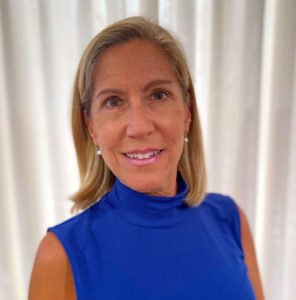 Ed Talk is a biweekly opinion column. The views expressed are solely the author’s.
Ed Talk is a biweekly opinion column. The views expressed are solely the author’s.
School divisions and local governments in the region and across the country are providing child care while students are learning online.
These programs recognize that many parents cannot work from home and that low-income students in particular benefit from the adult supervision, help with technology, and food provided.
For example, Fairfax County Public Schools provides full-day child care at 37 school sites with fees based on income that are as low as $80 per month. Loudoun County is offering child care at 11 elementary schools and two additional sites for a fee, with a 50% discount for students enrolled in the Free and Reduced Meals program. The City of San Francisco has 50 sites providing free child care to 700 students, with space for up to 2,000 students.
Here in Arlington, no Arlington Public Schools (APS) sites or Arlington County Government sites have opened for child care during the pandemic.
County officials are studying the issue.
“The County has been exploring multiple options for care for school-aged children with APS and non-profit partners, with the initial priority being at-risk children,” according to a statement that Deputy County Manager Michelle Cowan recently provided to ARLnow.
One option is a program to begin in October that would provide child care free of charge for 50 children, ages 4-11, at one APS location.
During the last school year, 4,402 Arlington elementary school students were eligible for free or reduced price meals, according to the Virginia Department of Education. The need for child care is much greater than 50 students.
Arlington officials should quickly assess how many spaces are needed for child care and expand availability for low-income children. Such an assessment is underway in Alexandria, which has created the Alexandria Emergency Child Care Collaborative.
The need for child care is driven not only by increased demand with students learning at home, but also by reduced supply caused by the closure of many private day care facilities due to the pandemic. Arlington County’s interactive map of private child care centers shows those that are closed and how few slots are available in the ones that remain open. Tuition charged at many private facilities are cost-prohibitive for low-income families.
There are many challenges to opening new child care facilities. These include identifying appropriate locations, staffing, and transportation; addressing licensing requirements and the health and safety of the participants; establishing eligibility requirements; and funding.
Other jurisdictions have addressed these challenges and have opened child care facilities for those most in need.
The need will continue, even as APS begins to bring students back to school for some in-person learning. The APS plan provides for some students with disabilities to return to school in October; additional students in November; and all students who chose a hybrid learning model starting in December. But the hybrid model has students learning from home more than they are at school. Child care still will be needed as this phased return to school is implemented.
Arlington County’s Child Care Initiative (CCI) was created in 2017, bringing together those in the public and private sectors with a goal to improve the affordability, availability, and quality of child care, recognizing that child care “is a key component of a thriving, diverse community.”
A fall 2019 CCI report notes that changes have been made to zoning ordinances and that “red tape” has been reduced, to help meet the CCI’s goals.
Addressing the need for child care as a result of the pandemic should be a top priority. CCI, Arlington County government, and APS need to continue to cut through red tape, work together, and provide quality child care for Arlington’s low-income families.
Abby Raphael served on the Arlington School Board from 2008-2015, including two terms as Chair. She also led the Washington Area Boards of Education for two years. Currently she co-chairs the Destination 2027 Steering Committee, is a member of the Board of the Arlington YMCA, and works with Project Peace, the Community Progress Network, and Second Chance.

